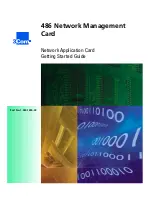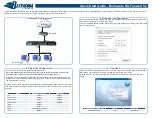
Intel® RAID Controller SRCSASRB Hardware User’s Guide
18
Additional safety guidelines:
•
When you disconnect a cable, pull on its connector or on its strain-relief loop, not on
the cable itself. Some cables have a connector with locking tabs; if you are
disconnecting this type of cable, press in on the locking tabs before disconnect the
cable. As you pull connectors apart, keep them evenly aligned to avoid bending any
connector pins. Also, before you connect a cable, make sure both connectors are
correctly oriented and aligned.
•
Handle components and cards with care. Don't touch the components or contacts on
a card. Hold a card by its edges or by its metal mounting bracket. Hold a component
such as a microprocessor chip by its edges, not by its pins.
Protecting against electrostatic discharge
•
Static electricity can harm delicate components inside your computer. To prevent
static damage, discharge static electricity from your body before you touch any of
your computer's electronic components, such as the microprocessor. You can do so
by touching an unpainted metal surface, such as the metal around the card-slot
openings at the back of the computer.
•
As you continue to work inside the computer, periodically touch an unpainted metal
surface to remove any static charge your body may have accumulated. In addition to
the preceding precautions, you can also take the following steps to prevent damage
from electrostatic discharge (ESD):
•
When unpacking a static-sensitive component from its shipping carton, do not
remove the component from the antistatic packing material until you are ready to
install the component in your computer. Just before unwrapping the antistatic
packaging, be sure to discharge static electricity from your body.
•
When transporting a sensitive component, first place it in an antistatic container or
packaging.
•
Handle all sensitive components in a static-safe area. If possible, use antistatic floor
pads and workbench pads.












































